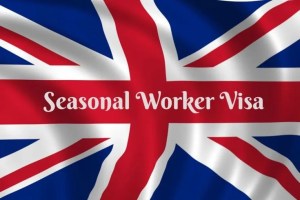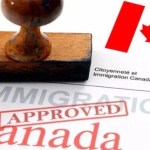The landscape of immigration in the UK has seen significant changes in recent years, particularly regarding visa sponsorship for employers. With new policies coming into effect, businesses need to be aware of the latest rules to avoid penalties and ensure compliance. This article breaks down the recent updates on UK visa sponsorship rules and how employers can stay informed and navigate these changes.
—
1. Understanding UK Visa Sponsorship
UK visa sponsorship allows employers to hire non-EU workers who do not have permanent resident status in the UK. To sponsor a foreign worker, employers must be licensed by the Home Office and adhere to specific regulations. Sponsorship covers various visa types, such as Tier 2 (General) for skilled workers, Tier 5 for temporary workers, and others like the Global Talent visa.

2. New Points-Based Immigration System
One of the biggest changes to UK visa rules is the introduction of the points-based immigration system, which started in 2021. This system requires employers to provide evidence that their prospective employees meet specific criteria to qualify for a visa.
Key Points Include:
- Job offer from a licensed sponsor
- Job at a required skill level (RQF Level 3 or equivalent)
- A salary threshold (typically at least £25,600, but it varies by job type)
- English language proficiency
Quick Tip: Employers should review their job descriptions to ensure they meet the required skill level for sponsorship eligibility.
3. Expanded Sponsorship Licenses
The UK government has expanded the categories of workers eligible for sponsorship, including healthcare professionals, digital tech experts, and creative industry talent. Employers in these sectors can now more easily sponsor skilled workers from outside the UK.
New Inclusions:
- Health and social care professionals
- Digital technology roles, such as software developers
- Creative industry workers, including designers and artist
Quick Tip: If your business falls into one of these categories, check if your current sponsorship license covers the new roles.

4. Sponsorship License Compliance
Being a sponsor comes with responsibilities. Employers must comply with a range of rules set by the Home Office, which include maintaining records on sponsored workers, ensuring that workers are working in the roles they were sponsored for, and notifying the Home Office of any changes in employment status.
Key Responsibilities:
- Keeping up-to-date records of sponsored workers
- Reporting any absences or changes to employment status (e.g., termination or change of role)
- Paying the required sponsorship fees
Quick Tip: Employers should designate a responsible person or team within their organization to handle sponsorship compliance to avoid fines and penalties.
5. Sponsorship Fees and Costs
There are several costs associated with sponsorship. The UK government requires employers to pay sponsorship fees when sponsoring a worker, which can vary depending on the size of the business and the job role.
Fee Breakdown:
- Application fee for the sponsorship license
- Immigration skills charge for each worker
- Visa application fees for the employee
Quick Tip: Ensure that the costs involved in sponsoring employees are factored into your recruitment budget, especially if you’re hiring multiple foreign workers.

6. The Role of the Immigration Skills Charge (ISC)
The Immigration Skills Charge (ISC) is another cost that employers must be aware of when sponsoring foreign workers. This fee applies to employers sponsoring skilled workers on a Tier 2 visa and is designed to contribute to training UK workers. The charge is set at £1,000 per year for larger employers and £364 per year for small or charitable employers.
Quick Tip: Exemptions are available for certain categories of workers (e.g., healthcare professionals). Review the list to check if your sponsored workers qualify for an exemption.
7. Temporary Worker Sponsorship (Tier 5)
While the points-based system primarily focuses on skilled workers, there are also provisions for temporary workers under Tier 5. This category allows employers to bring workers from abroad for temporary roles, such as those in the charity or sports sector, or under government-authorized exchange programs.
Quick Tip: Employers should keep in mind that Tier 5 sponsorship requires a different type of license and has its own set of regulations and restrictions, such as specific job codes and salary caps.

8. Updates on Sponsor Duties During the Pandemic
The COVID-19 pandemic brought temporary changes to UK visa sponsorship rules, particularly regarding absences and remote working. The government temporarily relaxed rules around worker absences due to COVID-related illness or travel restrictions, but these rules are subject to change.
Quick Tip: Stay informed on any temporary policy updates, as the rules might change based on the public health situation.
9. Employer-Employee Communication
It’s vital for employers to communicate effectively with sponsored workers about their rights, responsibilities, and visa conditions. For example, sponsored workers are not allowed to change their role or employer without notifying the Home Office.
Quick Tip: Hold regular meetings with sponsored employees to ensure they understand their visa conditions and keep them updated about their employment status.

10. Impact of Brexit on Sponsorship Rules
Brexit has had significant implications for the UK’s immigration system, including visa sponsorship. The end of free movement between the UK and EU means that employers must now sponsor EU nationals in the same way they do for non-EU workers.
Quick Tip: Employers should familiarize themselves with the updated rules for EU workers and ensure they apply for sponsorship licenses if needed.

CONCLUSION
As the UK continues to refine its immigration system, staying updated on the latest sponsorship rules is crucial for employers looking to hire international talent. By understanding the changes to the points-based system, sponsorship fees, and compliance requirements, employers can ensure they are well-prepared to navigate the complexities of visa sponsorship.
Staying compliant with these new rules not only helps businesses avoid penalties but also ensures they attract and retain skilled workers from around the globe, helping their companies thrive in the ever-competitive market.


